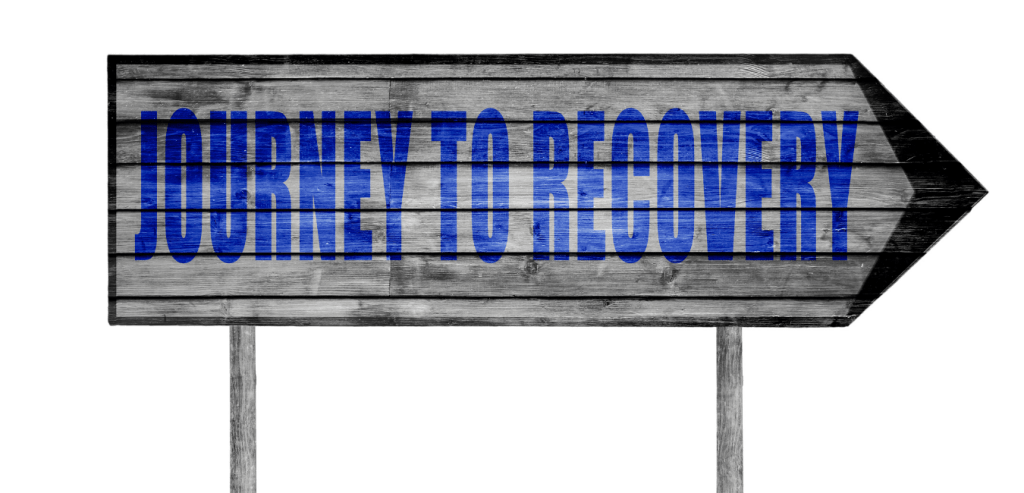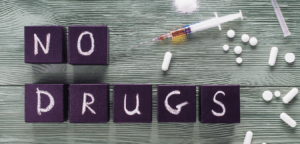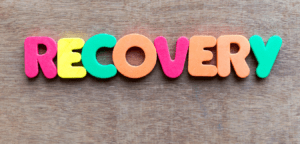Recovery is a lifelong process of improving health and well-being while living independently. Many people suffering from addiction achieve sobriety. Recovery is more difficult. It involves changing your outlook on life, your behavior and in some cases your environment. Successful recovery is inspired by the hope that recovery is possible and faith that you will recover.
The Four Pillars of Recovery
Health
Making decisions that support physical and mental health and avoiding drugs, alcohol or other substances of abuse.
Purpose
Living for something, whether it’s taking care of someone, giving back to the community or striving to reach goals.
Community
Cultivating meaningful relationships, characterized by friendship and love.
Home
Having a safe, stable and stress-free place to live.
Principles of Recovery
Recovery is different for everyone. It’s a highly individualized process that is influenced by numerous factors, including the type, severity and duration of addiction. However, there are principles that encompass recovery for all types of addiction.
Steps to Recovery
Many people suffering from addiction don’t know where to seek help or how to recover. They may have failed to recover on their own and believe recovery is impossible. Many people are in denial about their illness or ashamed to admit they’re addicted. The following steps will help people suffering from addiction begin recovery.
1 Recognize Addiction Exists
The first step of recovery is recognizing addiction exists and admitting change is necessary to overcome it. In most situations, a person cannot recover from addiction until they’re willing to commit to change. Recognizing addiction exists also means recognizing that recovery is possible.
2 Learn About Addiction
Most people don’t understand what addiction is. Many people believe addiction is a choice, but it isn’t. Addiction is a disease, and it requires disease-specific treatment. You can learn about the different types of addiction to aid in your substance abuse recovery.
3 Prepare for Recovery
Treatment and recovery are most successful when people prepare to overcome addiction.
4Seek Treatment
Treatment is different for everyone. Patient-centered treatment plans address individual needs and are flexible to each person’s situation in life. Determine the best treatment option for you to begin recovery.
Inpatient Treatment
Inpatient treatment means staying at a facility for 30, 60 or 90 days. Facilities that provide inpatient treatment include detox centers, comprehensive rehabilitation centers, hospitals and some nonprofit community organizations. Most people seeking inpatient treatment require safe, structured environments.
Outpatient Treatment
Outpatient care provides the same treatment that inpatient facilities do, such as detox, counseling and therapy. However, outpatient care allows patients to have much more freedom. Patients attend daily meetings or multiple meetings during a week, but they can still work or attend school.
Cost of Treatment
The costs of avoiding treatment far outweigh the costs of rehab. Addiction leads to poor physical, mental and financial health. Low-cost or state-sponsored treatment facilities are effective, but they often include few amenities and have long waiting lists. Luxury treatment centers provide high-end accommodations, but the bill for one of these centers is much larger than for a standard facility.
Transitioning After Treatment
After achieving sobriety and attending therapy at an addiction rehabilitation center, recovery truly begins. For many people, transitioning to a life without constant support from doctors and nurses is difficult. Transitional living facilities exist to help people in recovery from addiction maintain sobriety and find meaning in life.
Sober Living Homes
Sober living homes, including halfway houses, improve treatment outcomes for people recovering from addiction. Stays can range from several weeks to several months, and the cost is similar to renting an apartment — some cost more than others.
Other Transitional Environments
It’s important for people in recovery to avoid returning to high-risk living environments. If a person’s home is full of risks that could lead to relapse, he or she should stay with supportive family members or friends when sober living homes aren’t an option.
Finding Purpose
Many people recovering from addiction find happiness in helping others who are recovering from addiction. Others discover a spiritual or religious calling that gives them purpose. It’s important to find something that makes you happy, especially during the early stages in your recovery.
Lifelong Recovery
Recovery from addiction is a lifelong process, and it requires lifelong effort. The earliest days of detox may seem like the most difficult, but maintaining sobriety, changing behavior and finding happiness can also be challenging. With treatment and support, you can be free of addiction.
Avoiding Relapse
Avoiding addiction-oriented behavior — whether you’re avoiding drugs or abstaining from gambling — is a key component of substance abuse recovery. There are several ways people in recovery can avoid relapse, but one of the most well-known is HALT. The acronym describes feelings that can lead to relapse.
How to avoid relapse with the HALT method:
HUNGRY
An unhealthy diet harms your emotional well-being.
ANGRY
Feelings of anger or frustration build up and can lead to relapse.
LONELY
Isolation and self-pity lead to loneliness, which makes recovery difficult.
TIRED
Lack of sleep or overwhelming stress derails motivation for recovery.
anaging Relapse
People in recovery often relapse. Between 40 and 60 percent of people recovering from addiction relapse, but that doesn’t mean all progress is lost. Therapy teaches people how to manage relapse, and support helps decrease the severity of relapse when it occurs.
Stress-Relief Strategies
Stress is one of the most common risk factors for addiction and relapse. People who have been in recovery for years can relapse when life becomes stressful.
These steps can help you find relief from stress:
- Change your environment or avoid high-risk situations.
- Remove stressful relationships from your life.
- Aim for short-term goals and make progress one day at a time.
- Exercise regularly — even walking helps remove stress.
- Eat a healthy diet to maintain physical and mental health.
A Life Free of Addiction
Every aspect of life should be aimed at maintaining happiness and well-being. People in recovery should find a job they find pleasure in, develop meaningful relationships and attempt to achieve realistic goals. Many people attend support group meetings, volunteer or pursue a spiritual calling, but everyone is different. Each person must discover what he or she wants to live for.
Credited to:Drug Rehab










